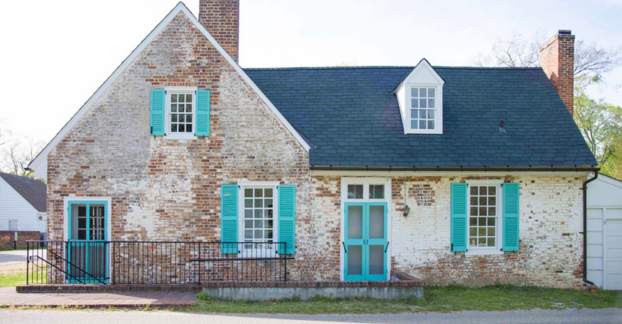In a dynamic real estate environment, distressed properties are gaining importance daily. A distressed property is, in simple words, one that has not been maintained for a long time. As a result, it becomes obsolete, damaged, and under-repaired.
However, these properties are also beneficial investments for investors who pick the right ones. If the right strategy is applied, these properties possess high potential profits. Now, the main question arises how to find distressed properties?
Finding is a relatively easy task, though. In this guide, we’ll cover the topic of distressed properties and unveil methods of how to find distressed properties easily. Whether you are an established investor or just have the desire to get into real estate, these lessons and tricks in the bag will give you all the insights and tools you need to make the most out of the rewarding market.
What Is A Distressed Property?

A distressed property is one that is in bad condition, not repaired or maintained for years, facing financial hardship or legal issues that make it very difficult for the owner to maintain or sell it. It demonstrates neglect symptoms such as visible structural damage, overgrown landscaping, or a visible sign of neglect.
Despite all these factors, there are many investing perspectives on distressed real estate properties because, with these kinds of assets, one could purchase real estate assets with prices lower than the market rates, having chances for renovation, rehabilitation, or resale for a profit.
What Are The Different Types of Distressed Properties

Distressed real estate properties manifest in a wide range of scenarios. Here are the different types of distressed properties:
- Foreclosed Properties: These properties are considered by the banks as involuntary possession of a guarantee provided by an owner for the payment of a loan but were unable to do so. Due to the fall in house prices, there has been a rise in the number of auctions and bank-owned listings (REO – Real Estate Owned).
- Short Sale Properties: In a short sale, the homeowner sells the whole house for less than the mortgage debt—under the sender’s approval. Homeowners who are unable to cover their monthly mortgage payments and own more mortgage debt than the actual market value of their property are forced to sell their property, which is commonly known as a short sale.
- Probate Properties: Probate property is a term used to designate assets owned by a departed person who nominated his/her executor(s) to administer his/her estate. Such assets are subjected to a court-based process called probating. If the heirs will not maintain the properties or need to sell them quickly due to the outstanding debt, such properties will definitely become distressed.
- Bank-Owned (REO) Properties: During the failure of the foreclosure auctions, the lending institutions revert to holding the property in their name, therefore becoming real estate-owned (REO) properties. The defining feature of such assets is that they are typically fed into the bank-owned listings and may be in various conditions, from the most dilapidated structures to the ones that remain untouched by time.
- Distressed Multifamily Properties: These would be buildings such as apartment complexes or neighborhoods with renters who include families with children and senior citizens with inability to meet financial obligations.
How To Find Distressed Properties

In the realm of real estate investing, so-called distressed real estate properties are usually considered highly potentially hidden treasures that can be developed with good adeptness. These real estate assets, which might range from abandoned ones to bank-owned ones or in need of extensive rehabilitation, can offer exceptional avenues for investors within the real estate business who are able and ready to do the work.
Here are some easy ways of how to find distressed properties:
1. Research Local Market Trends
Doing research on distressed homes requires you to understand the local real estate market dynamics. By having updated sales data research, foreclosure rates, and property trends analysis in your area, you will be able to determine the appropriate pricing. This can enable you to know by all means the neighborhoods with a higher incidence of property that can give you an idea of where to start your search.
2. Utilize Online Resources
Use the internet to look for distressed homes. Searching it online makes your search easy and very fast. Individuals can look for distressed assets through websites such as citadel property management crop, foreclosure, etc., that provide information on pre-foreclosures all over the US.
3. Network with Industry Professionals
Learning partners, agents, and property managers will make the identification of distressed properties easier. Often, sources of such information are insider professionals who have forecasted future sales of default properties, short sales, and distressed real estate that is not yet listed on public platforms. Attend networking events, join any real estate investment community around you, and leverage social media platforms to expand your network and get into the group of privileged people who have extra investment opportunities.
4. Drive for Dollars
Walk around and search for areas of neglect, e.g., boarded-up windows, overgrown lawns, or desolate buildings, to discover an accurate image of the community’s condition. By propelling for dollars, you may see the profit for all possible investment deals that won’t be seen in online classified ads.
5. Attend Foreclosure Auctions
For mortgages, auctions can be a considerable situation in finding distressed properties. Get the details of the upcoming auctions in your area. Ensure a clear understanding of your budget and where you want your investment to go. With these, show up confidently at the auction. However, do not forget to exercise caution. Know the potential risks and profitability in every property you are interested in.
6. Partner with Wholesalers
The wholesale niche deals with identifying distressed commercial and business properties and their procurement through motivated vendors at better rates. Wholesalers allow to overcome the problem of lack of off-market real estate and disclose the acquisition stage quickly. Develop networking with local wholesalers and establish mutually beneficial relations with a producer-consumer approach and integrity.
7. Explore Government Programs
The government undertakes housing rehabilitation efforts by providing particular incentives to investors who select renovating outdated properties as their investment target in designated areas. You can reach such government programs to find the best investment opportunities near you.
Locate The Most Reasonable And Profitable Distressed Properties In New York City

Finding or locating distressed properties is one of the most challenging tasks that requires dedication, a fresh approach, and proactive networking. Through the digital platform, under the guidance of experts in this field. Thinking creatively, investors can catch some profitable deals in the real estate market. Recognize that you must assess the prospects of different properties individually correctly and stay focused on your investment policy. Prevalence of toughness and patience could turn affected real estate assets into a way out for investment success. It’s in the cold world of property.
You can use above stated innovative approaches to find a distressed property or contact Citadel Property Management Corp, a US-based real estate company that offers its clients the opportunity to explore properties management and other real estate properties in New York City.
FAQs
1. What is the advantage of a distressed property?
The advantage of distressed property is that it requires a low investment.
2. What is the disadvantage of a distressed property?
The disadvantage of distressed property is that it leads to financial loss. This is for the seller and unexpected repair and maintenance costs for the buyer.
3. Does the distressed property require a low investment outlay?
Yes. The distressed property requires a low investment outlay compared to other real estate properties.
4. How do you calculate the value of a distressed property?
There is no exact method of calculating the value of distressed property. However, it costs less than the market price of the property.
5. Is it safe to buy a distressed property?
Yes, it is safe to buy a distressed property. However, one must consider all the legal, social, and financial aspects before doing so.



